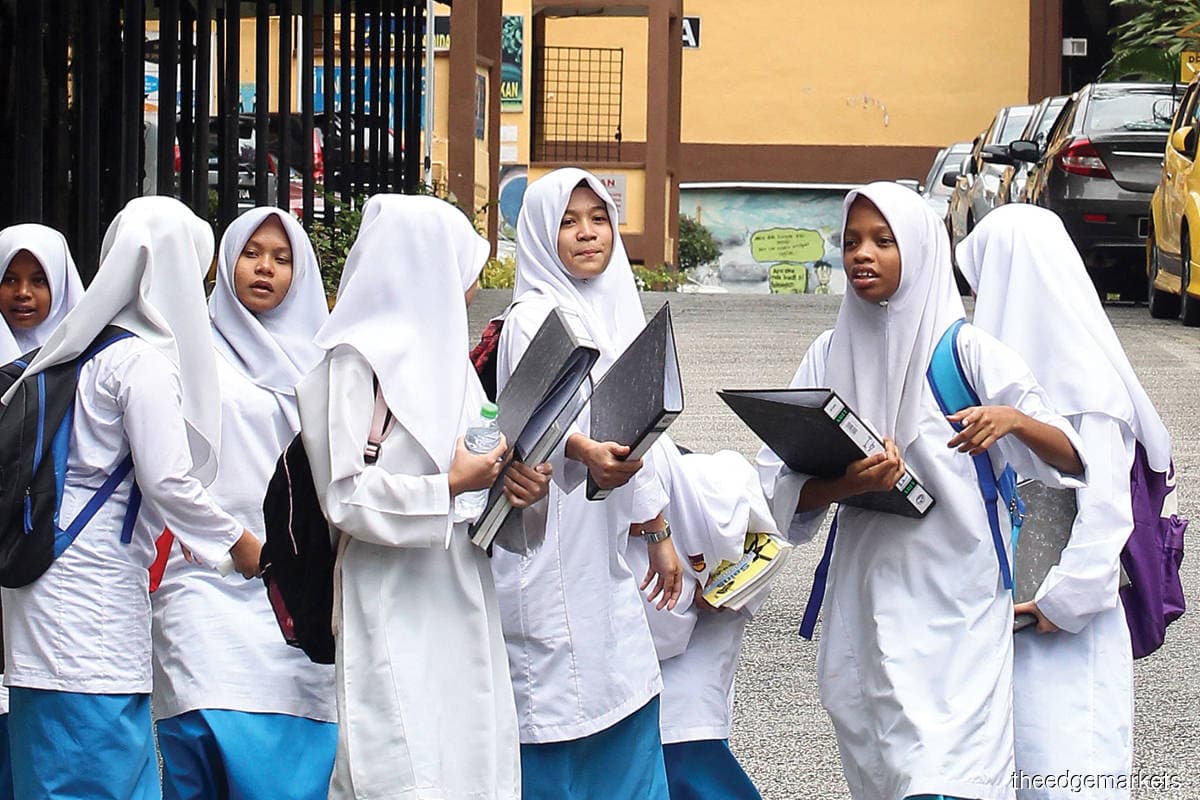
This article first appeared in The Edge Malaysia Weekly on December 27, 2021 - January 2, 2022
THOSE born in 2013 and 2014 are described as the lost generation — they would not have had a proper year of face-to-face schooling because of the Covid-19 pandemic.
Children born in 2013 should have been in Standard 1 last year and, by now, they should have completed two full years of face-to-face schooling. Those born a year later should have had at least one year of classroom experience.
But nothing of that sort happened in 2020 and 2021.
In Malaysia, the education calendar is generally about 42 weeks a year. The school year starts in January and ends by late November. But schools were shut for most of last year and this year.
According to a study by Emir Research, Malaysian schools saw 35 weeks of closures owing to the pandemic — among the longest in the world, according to the think tank. It said schools in high-income nations were closed for up to 16 weeks while in Singapore they were shut down for just four weeks. In China, where the Covid-19 virus originated, students missed classroom lessons for nine weeks.
During the lockdown, lessons were conducted online. But online learning is not as effective as face-face learning. The primary reason is that the pivot to online learning was very sudden and many were not prepared.
According to a report, it is estimated that more than 35% of Malaysian students, especially those in the lower primary grades, were not equipped to cope with online learning. They either did not have a laptop or tablet, or they had to share devices with their siblings. In the interior, broadband connectivity was a problem.
Apart from a lack of devices, monitoring the performance of students during online classes is a problem, especially if they are in the lower primary. Nobody knows for sure how much influence parental guidance and external help has on learning outcomes.
Also, in the early months, teachers who were not trained to conduct classes online had to cope with this new way of teaching.
Online teaching has added to the paperwork teachers must complete compared with before the pandemic. Now, teachers say that it is normal for them to spend more than 50% of their time completing paperwork related to the effectiveness of online classes.
Next year, students and teachers will have no choice but to accept the revolution in classroom learning. Hybrid attendance, where students take turns to attend classes, will become the norm. Outbreaks of Covid-19 will be viewed in a less alarming light.
But the loss of learning over the last two years will not go away unless something is done to close the gap, especially for the disadvantaged students who may drop out in the next few years.
Various studies overseas have shown that the knowledge gap between advantaged and disadvantaged students has grown wider because of the pandemic. In Uganda, a study revealed that more than 30% of students did not return to school after the pandemic because they had lost interest.
In the UK, it has been reported that the attainment gap between the advantaged and disadvantaged students was pushed back by as much as two-thirds, in terms of time needed, due to the lack of face-to-face learning.
Domestically, the disparity between the good and weaker students would have widened during the pandemic. Generally, academically inclined students — especially in the lower primary levels — come from an environment that is more privileged. The weaker ones tend to have a disadvantaged background without adequate support, supervision and a conducive environment for effective online classes.
As we enter the new year, there is a need for the Ministry of Education to introduce more small-group tutoring and extend school hours for those falling behind in their studies. The private sector should be roped in to assist.
To overcome the learning loss, there is a need for more financial resources and out of the box teaching methods. The country will reap the benefits long beyond 2022.
Save by subscribing to us for your print and/or digital copy.
P/S: The Edge is also available on Apple's AppStore and Androids' Google Play.